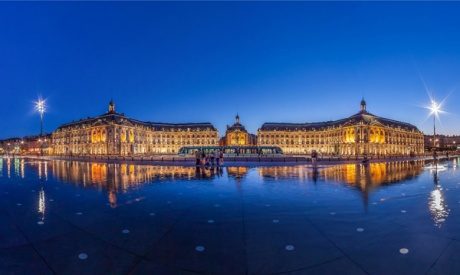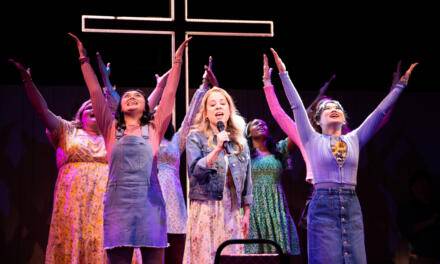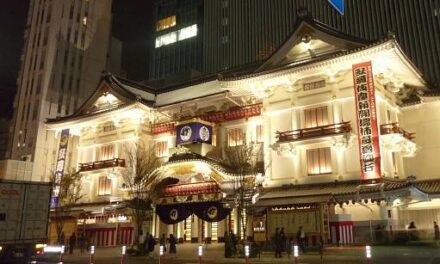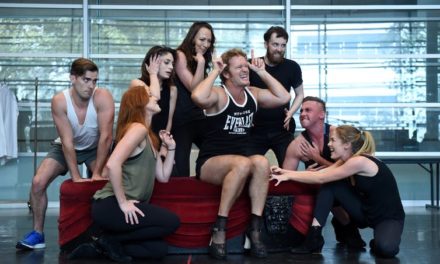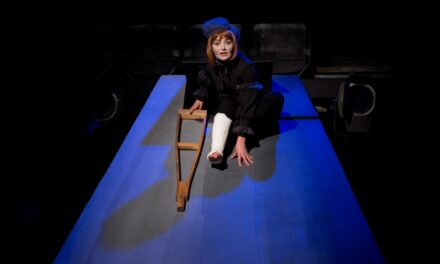The University of Bordeaux Montaigne concluded its 2018 public cultural program with a Maghreb-dominated conference on female theatre in the Arab world.
For two very intense days on October 23-24, Arab scholars and theatre practitioners gathered to share their reflections on the topic of the feminine Arab stage, contributing to a truly vital exchange that involved students and researchers of the academic art scene in Bordeaux.
Organized by the incredibly successful trio Omar Fertat, Pierre Katuszewski, and Wahid Chakib, the conference was a model of exploration, brainstorming, and cooperation based on the fundamentals of friendship. With very limited funding it managed to bring together some of the most prominent artists of the Arab region, including the iconic Tunisian actor Jalila Baccar.
And while many festivals and conferences in the Arab region shy away from discussing the topic of discrimination against women whether at the social level or within the performing arts field, the University Montaigne Bordeaux offered the chance of a free and uncensored discussion covering the Arab region and performing arts practices over a broad scope of space and time.
Baccar inaugurated the conference with a talk on her life-long experience with the New Theatre troupe and her artistic partner and husband Fadel Al-Jaibi, with whom she founded it, connecting the experience of theatrical experimentation to the political conditions through which Tunisia was living, and demonstrating how the socialist, liberal context of their intellectual and aesthetic work was part of the country’s eventual revolt and transformation.
Baccar presented her theatrical experience as an organic part of a societal and cultural journey towards change. She positioned her work in the context of expressing citizenship, freedom of expression, and critical thinking. Indeed sometimes she recalled Jean Vilar’s Théâtre Citoyen (Theatre as a Citizen).
She also revived the concept of a theatre that fights for human rights while being in itself a human right. She reflected on the recent period of Muslim Brotherhood (Al-Nahda) rule following the Tunisian revolution and how theatre had to fight again for its existence and for overall public freedom.
The most evident example is the New Theatre’s masterpiece Violence, by far the only production in the Arab region to truly explore the aftermath of the Arab revolutions, analyzing the emergence of the human beast out of a chaotic moment when conscience is crushed. Violence remains a philosophical essay analyzing the depths of oppression and of revolt, and their impact on human psychology and behavior.
Baccar also gave a separate, special talk on her artistic journey as a writer and actress. She insisted that her artistic identity is double, she writes with the consciousness of an actress and acts with the consciousness of a writer. She embodies her characters when she writes, then she speaks in their voices and identifies with each of them. Her writings are directly fit for the stage, and her theatrical attitudes are visible in her writing.
The conference also featured the prominent, Sweden-based Moroccan director Asmaa Houri and the France-based Moroccan choreographer-actress Salima Moumni. Houri had previously won the prize for best production at the annual competition of the Arab Theatre Institute, for her piece Autumn.
At a roundtable dedicated to the role of women in the Arab performing arts held at the National Theatre of Bordeaux, she spoke powerfully of the dangers of portraying the female Arab artist as a victim of her society, inviting everyone to consider discrimination against women as one of the universal issues humanity is facing. She drew attention to the possibility of celebrating the success of the female—and all—artists instead of focusing on the difficulties they confront.
Loubna Boufar, who is an active theatre director running her own theatre company in Bordeaux, spoke of her experience as a theatre director of Moroccan origin. She gave examples of how the bad reputation of female performers can follow them across the Mediterranean. Her experience is, on one hand, empowering and on the other wary of what one has to go through to confront social issues and norms all over the world.
The French-based Syrian artist Bissane Al-Charif spoke of how difficult it was for her to start her career as the first scenographer in Syria. She bravely addressed the obstacles that face women when they step into new careers and try to be pioneers in their field. She also spoke about the sexual violence women face, especially those of them who are in the film and video business.
One could easily ask why the #MeToo movement is far from Arab screens and stages—is this a sign that the acting business in the region has been healthier and fairer to women than in the West?
With a strong history of discrimination against females since childhood, including female genital mutilation and sexual harassment, the artistic representation, and discussion of such issues is simply non-existent in Egyptian theatre.
I wonder why, I also wonder why male scholars, critics, and artists hold a grudge against any cultural activity that aims to discuss those issues, and why some such events become heated with aggressive debates often resulting in an apology by the organizers for choosing the topic. Why does the Arab production system consider works aimed at discussing the women’s oppression of lower artistic merit made by frustrated individuals who hate men?
The attempt to break the silence and the taboo regarding social issues on stage remain minimal, the exception within a clearly patriarchal system of knowledge and cultural production that would rather stagnate than enter the minefield in which its power structure and gender dynamics might have to be altered.
To witness the live discussion that took place in Bordeaux was refreshing, yet I would have preferred this discussion to take place within the region, in front of listeners who are in direct contact and negotiation with the power structures in question.
The special moments of celebrating the pioneering female figures in the Arab performing arts—especially present in the essay of the Syrian scholar Montajab Sakr—were brief, but they provoked the very legitimate questions of why we no longer have such pioneering artists?
Why do they all belong to the beginnings? And why is the Arab region so divided when it comes to reviewing issues that face the Arab artists in their respective societies? Is it possible to gather and discuss the conditions and the codes of conduct that rule the Arab stages and their production policies? And how far can those policies impact and restrict creativity within the work of art?
This post was written by the author in their personal capacity.The opinions expressed in this article are the author’s own and do not reflect the view of The Theatre Times, their staff or collaborators.
This post was written by Nora Amin.
The views expressed here belong to the author and do not necessarily reflect our views and opinions.

